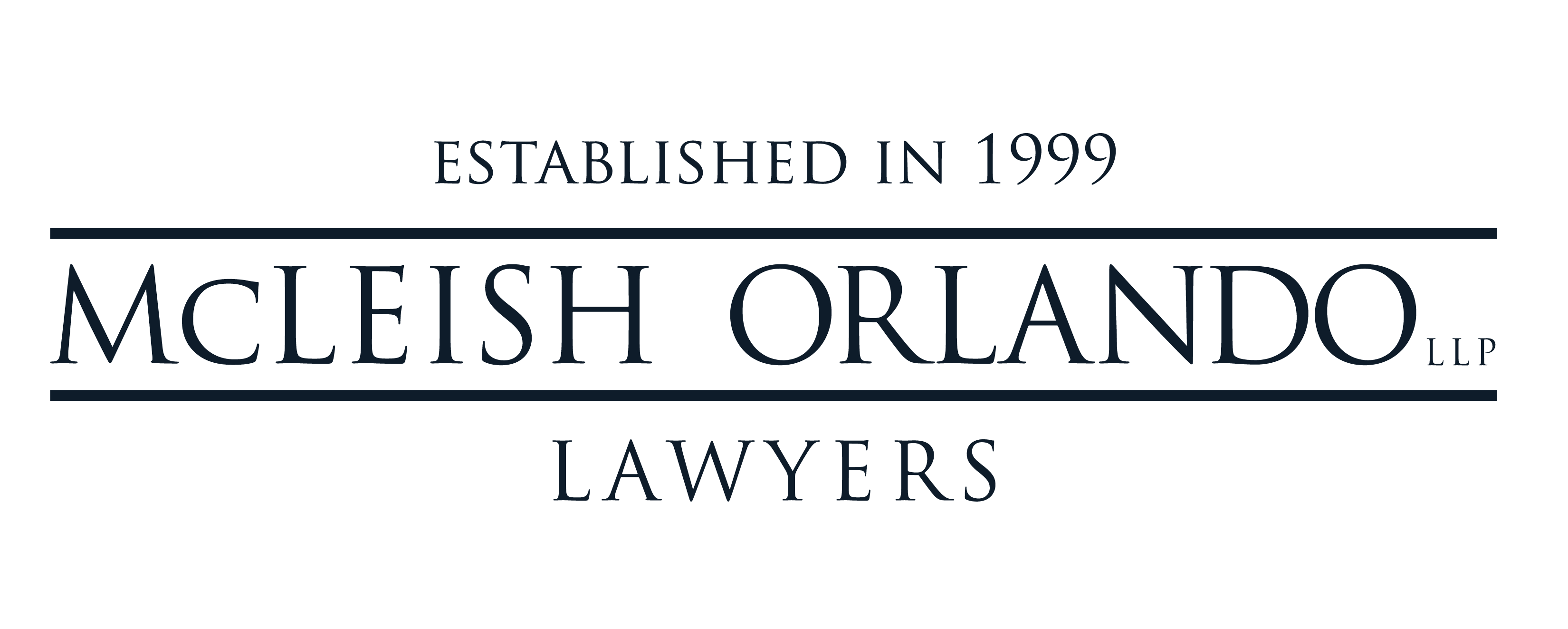Written by: Lindsay Charles, Partner, Savannah Snyder, Associate & Diya Parikh, Summer Student
5 Minute Read
In tort claims, a type of pecuniary damages that may be pursued includes past or future loss of income. In some cases, other salary benefits a plaintiff is entitled to may be deducted from the damages owed to a plaintiff to prevent double recovery.
Double recovery occurs when a plaintiff receives more compensation than they are entitled to for a single loss or injury. It is important to be aware of what benefits can be deducted from a loss of income claim. For injuries arising indirectly or directly from the use or operation of an automobile, section 267.8(1) of the Insurance Act,[1] governs.
Below is a breakdown of benefits relating to employment and their effect on a claim for loss of income arising from a personal injury.
Canada Emergency Response Benefit (CERB) and Canadian Recovery Benefit (CRB)
In the 2024 decision of Ferreira v Hopper,[2] the Ontario Superior Court of Justice determined the deductibility of CERB and CRB payments in a loss of income claim as a result of a motor vehicle accident. The Honourable Justice Ten Cate held that if a plaintiff’s income loss was due to the subject motor vehicle accident and unrelated to COVID-19 then CERB and CRB are deductible.
Severance Package
Severance is typically not deductible from a loss of income award. However, if a portion of the severance package can be deciphered as salary continuation, then that portion is likely deductible.
In Flammia v Royal Glen Eagle,[3] the Superior Court of Justice held that a termination agreement was more than a mere agreement to continue to pay the plaintiff salary and was not deducted from damages awarded for loss of income. In this case, the employee also agreed to a non-compete in exchange for the salary continuation.
As a result, if the continuation of salary and termination pay are not easily separated, then both are not deducted from loss of income.
Canada Pension Plan (CPP)
As discussed in our previous blog, deductibility of CPP payments depends upon whether the claim was a result of a motor vehicle accident.
If the claim is a result of a motor vehicle accident, then CPP payments are deductible from future loss of income awards. This is due to the enactment of section 3(7)(d)(i) of the Statutory Accident Benefits Schedule,[4] a regulation under the Insurance Act, which deems CPP disability pension payments deductible from motor vehicle accident claims to be included as payments for loss of income.
For claims derived from non-motor vehicle accident personal injuries, then CPP payments are not deductible from future loss of income awards. This is supported by the private insurance exception, which stands for the principle that because the plaintiff has paid into the benefit that they received, that benefit is not deductible. However, it is important to note the law of CPP payment deductibility is still developing.
Employment Insurance
Employment insurance benefits are not deductible from a tort award at common law. The Supreme Court of Canada in Jack Crew Ltd. v Jorgenson, held that EI benefits cannot be deducted from damages for wrongful dismissal as the provision of EI benefits are a consequence of the contract of employment. This was confirmed in a personal injury context in MiddleKamp v Buddy’s Steak Ranch Ltd.[5]
Of note, section 45 of the Employment Insurance Act[6] requires EI recipients to repay the government when they receive an award or settlement.
Ontario Works (OW)
The Supreme Court of Canada in M.B. v British Columbia[7] determined that social assistance benefits are a form of wage replacement and they are deductible at common law from a tort award for income loss. This was reiterated in Grajqevci v Rustaie,[8] where the Honourable Justice Faieta confirmed the payment of income assistance under OW is a payment of income for income loss or loss of earning capacity under the laws of any jurisdiction in claims arising from a motor vehicle accident. However, the OW benefits must be in connection with the subject incident to be deductible.
Ontario Disability Support Program (ODSP)
ODSP payments are generally not deducted from damage awards for loss of income. This is because such payments are not considered to be made “in respect of the incident” that caused the loss. In Grajqevci v Rustaie, Justice Faieta confirmed that ODSP benefits are not to be deducted from damages awarded for loss of income or earning capacity resulting from a motor vehicle accident.[9] The court reasoned that ODSP payments are not meant to compensate for injuries or losses directly linked to the incident.
As for EI benefits, the Ontario Disability Support Program Act includes rules requiring recipients to reimburse ODSP if they receive funds, such as from a settlement or award, that might impact their eligibility.[10] However, this reimbursement requirement is separate from the issue of whether ODSP payments are deducted from tort awards. It relates instead to whether someone remains eligible for ODSP after receiving compensation that may count as income or assets.
Workplace Safety and Insurance Act Benefits (“WSIB”)
For motor vehicle accidents, subsection 267.8(15) of the Insurance Act[11] explicitly provides that any payments or benefits received that were, are or may become available to a person under the Workplace Safety and Insurance Act, 1997 does not reduce tort damages for income loss and loss of earning capacity.
Human Rights Tribunal Award
An award from the Human Rights Tribunal of Ontario (“HRTO”) is unlikely to be deducted from a loss of income award. Court settlements are not considered income under the Income Tax Act[12] and are not taxable. The HRTO can award general damages for breach of the Ontario Human Rights Code,[13] including damages for injury to dignity, feelings and self-respect, special damages, which are meant to return the plaintiff to the same financial position he or she was in prior to the injury, aggravated damages and punitive damages.
For example, following a personal injury to which your claim is derived from, an employer may fail to accommodate the plaintiff’s new injuries, breaching section 2(1) of Ontario’s Human Rights Code. In the event an application is successfully brought to the HRTO, this award would likely not be deducted from your loss of income award in the personal injury claim.
Summary of Deductibility of Benefits
Understanding which benefits are deductible from a loss of income claim is essential to ensuring a fair compensation process and avoiding double recovery. Below is a comparison chart which captures the benefits and their corresponding deductibility from loss of income awards.
| Benefit | Deductible? | Notes |
| CERB and CRB | Yes | CERB and CRB are deductible if the benefits were collected due to the personal injury rather than COVID-19. |
| Severance | No | Unless salary continuation can be distinctly separated. |
| CPP | Yes, if MVA
No, if non-MVA |
In the case of a motor vehicle accident, CPP benefits are deductible under the Insurance Act.
|
| EI | No | However, EI benefits may be required to be repaid upon settlement. |
| OW | Yes | OW is deductible if the benefits are connected to the subject personal injury incident. |
| ODSP | No | ODSP payments are not deductible from personal injury damages because they are not made in respect of the injury underlying the claim. |
| WSIB | No, if MVA | In the case of a motor vehicle accident, WSIB is specifically exempted under the Insurance Act. |
| HR Award for Failure to Accommodate | No | HRTO damages are not considered income under the Income Tax Act. |
If you have suffered an injury that has resulted in past or future loss of income, you could be entitled to damages. Our team at McLeish Orlando is dedicated to ensuring you receive the compensation you are entitled to. If you think you have a loss of income claim, do not hesitate to contact us for a free consultation.
SOURCES
[1] Insurance Act, RSO 1990, c. I.8.
[2] Ferreira v Hopper, 2024 ONSC 5385
[3] Flammia v Royal Glen Eagle, 2014 ONSC 7522
[4] Statutory Accident Benefits Schedule — Effective September 1, 2010.
[5] Middlekamp v Buddy’s Steak Ranch Ltd., 1981 CanLII 2140
[6] Employment Insurance Act, RSC 1996, C. 23.
[7] M.B. v. British Columbia, 2003 SCC 53.
[8] Grajqevci v Rustaie, 2017 ONSC 2535.
[9] Ibid.
[10] Ontario Disability Support Program Act, 1997, S.O. 1997, c. 25, Sched. B.
[11] Insurance Act, supra note 1, s 267.8(15).
[12] Income Tax Act, RSC 1985, c. 1.
[13] Human Rights Code, RSO 1990, c. H.19.





